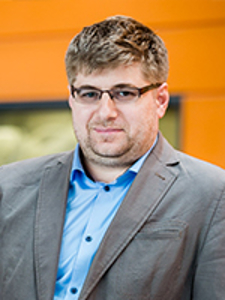OSE Seminar by Prof. Denis Seletskiy on Introduction to subcycle quantum optics and applications
Departmental News

Posted: September 2, 2025
Date: Thursday, March 9th, 2023
Time: 12:15 PM - 1:15 PM
Location: PAIS, Room 2540, and via Zoom
Abstract:
Classical electrodynamics operates with field amplitudes that are exactly defined in space-time. Such infinite precision is in violation of Heisenberg's uncertainty principle of quantum mechanics.
The invention of the laser accelerated the development of the modern theory of quantum optics traditionally carried out in the frequency domain. Quantum states of light are characterized via homodyne detection, which delivers cycle-averaged information about the state. After a brief introduction, I will present a recently emerging technique in nonlinear quantum optics that allows the measurement of quantum fields on subcycle timescales, i.e. cycle-resolved. Following a review of the main achievements in this research field, I will introduce our recent proposal that uses demonstrated single-temporal-mode 10-fs bright entangled beams as a resource for improved detection of beyond-variance statistical moments of quantum distributions. I will conclude with a brief discussion of some applications including mid-infrared quantum metrology, where subcycle quantum optics is poised to uncover new opportunities.
Biography:
